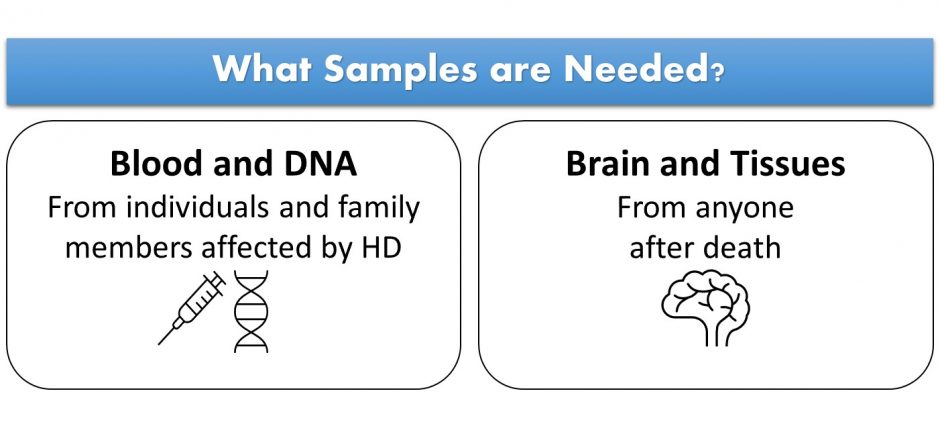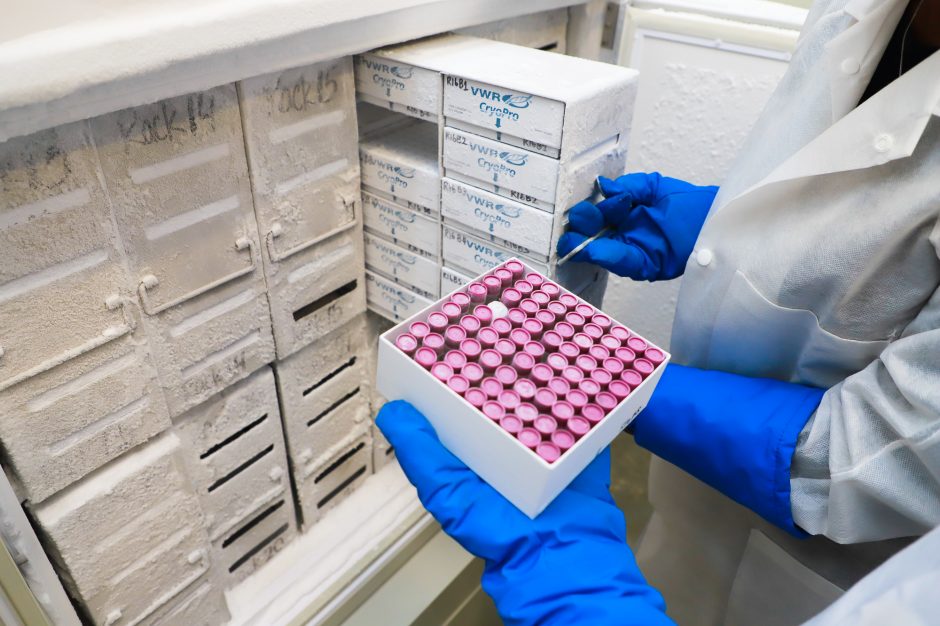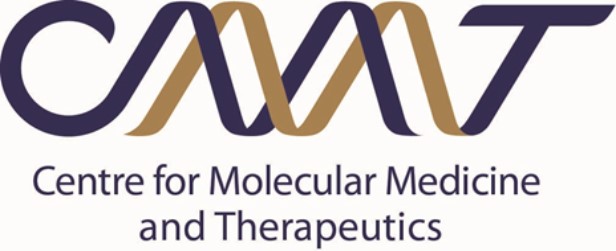
Patients and Families
Helping HD Research
While animal studies are valuable to HD research, studying donated human tissue and DNA is vital to our understanding of the disease in humans. A single donated biological sample can be used in multiple research projects. Anyone can contribute to the HD biobank: individuals affected by HD, unaffected family members or members of the public with no family history of the disease. These control samples are crucial to compare to samples from individuals with HD. Each donation makes a unique contribution to understanding HD.

Donated Samples Provide Hope for New Discoveries
As HD progresses, biological changes can be detected in our DNA, blood, brain, tissues, cerebrospinal fluid, skin cells, and sperm. They can be tracked by researchers to understand disease progression.
Human brains and tissues provide unique access to study HD at the genetic, cellular, and systemic level. Studying changes in these tissues allows researchers to characterize HD progression.
UBC HD labs have utilized donated samples for the past 40+ years. Thanks to these donated samples, the HD community has a greater understanding of HD pathogenesis and progression. This knowledge has directly led to clinical trials. It is only through partnership with the HD community that these achievements are possible.
Sample Storage and Sharing

When a sample is received by our team it is treated with the utmost respect. It is safely stored to ensure the integrity of the donation. The sample details and clinical information are added to our encrypted secure database. To protect the donors identity, the sample is given a laboratory specific identifier.
Researchers who want to collaborate with the HD Biobank will undergo a rigorous scientific and ethical review. This ensures these precious and scarce samples are used in the most promising experiments.
If the collaboration is approved, the samples will be shared worldwide to HD collaborators to facilitate scientific discoveries.
Privacy Protection
Protecting our donors’ identities is a top priority. The identity of the donor is strictly confidential to all staff and researchers except for the Biobank’s coordinators. Staff members and researchers have been trained in research ethics and understand the importance of data security. All patient medical data is kept in a secure, encrypted database with access limited to only trained and approved personnel. De-identified samples are shared only with researchers whose studies are pre-approved by an Institutional Review Board (IRB). This review system ensures that all projects have scientific merit and ethical approval before human samples can be used. If you have any questions or concerns about the privacy or security of your data, you can contact us. Participation in research requires your consent; You always have the right to end your participation.

Website: www.cmmt.ubc.ca
Researching Life to Change Lives
The HD Biobank acknowledges with gratitude and respect that we operate on the traditional, ancestral and unceded territories of the xʷməθkʷəy̓əm (Musqueam), Sḵwx̱wú7mesh (Squamish), and Səl̓ílwətaɬ (Tsleil-Waututh) Nations.